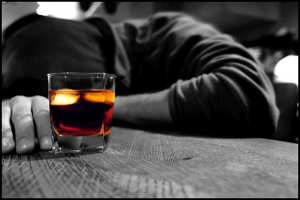 Substance abuse denial does not effect individuals only. It effects entire cultures and subcultures, both abroad and here in North America. Technically, using a substance even just slightly more than its intended and recommended use is substance abuse. This line is blurred in the cases of certain controversial substances such as marijuana, where studies are inconclusive on exactly who should and how to use the substance. But even in regards to controversial substances, denial of substance abuse can take place simply by deliberately avoiding an honest examination of how heavily a substance is being used.
Substance abuse denial does not effect individuals only. It effects entire cultures and subcultures, both abroad and here in North America. Technically, using a substance even just slightly more than its intended and recommended use is substance abuse. This line is blurred in the cases of certain controversial substances such as marijuana, where studies are inconclusive on exactly who should and how to use the substance. But even in regards to controversial substances, denial of substance abuse can take place simply by deliberately avoiding an honest examination of how heavily a substance is being used.
Many individuals are in denial of their substance abuse problem. In fact, when family and friends of a substance abuser want to confront the individual on their problem, they often hire an intervention specialist to do so because the specialist is trained in how to break through denial. Denial is the security blanket the substance abuser uses to continue feeling like they are in control of their lives. Breaking through denial means having to admit to vulnerability and mental unhealthiness; a very difficult thing to do for anyone who thrives at all on feeling in control. This is why denial is so prominent at an individual level over substance abuse.
In North America, there is an entire subculture of university students that is in denial of their substance abuse problem. Drinking and using drugs to excess is a common practice within this group, and those who blow the whistle on substance abuse are simply expected to move along. Similarly, in the United Kingdom, pub culture is very prominent and alcoholism has a different definition than it does in North America. Many people drink to excess in the United Kingdom but it is culturally accepted, and the acknowledgment of substance abuse is denied.
The two levels of denial can interact with one another as well. It is much harder to break through an individual’s denial if they subscribe to a collective, cultural form of denial.
